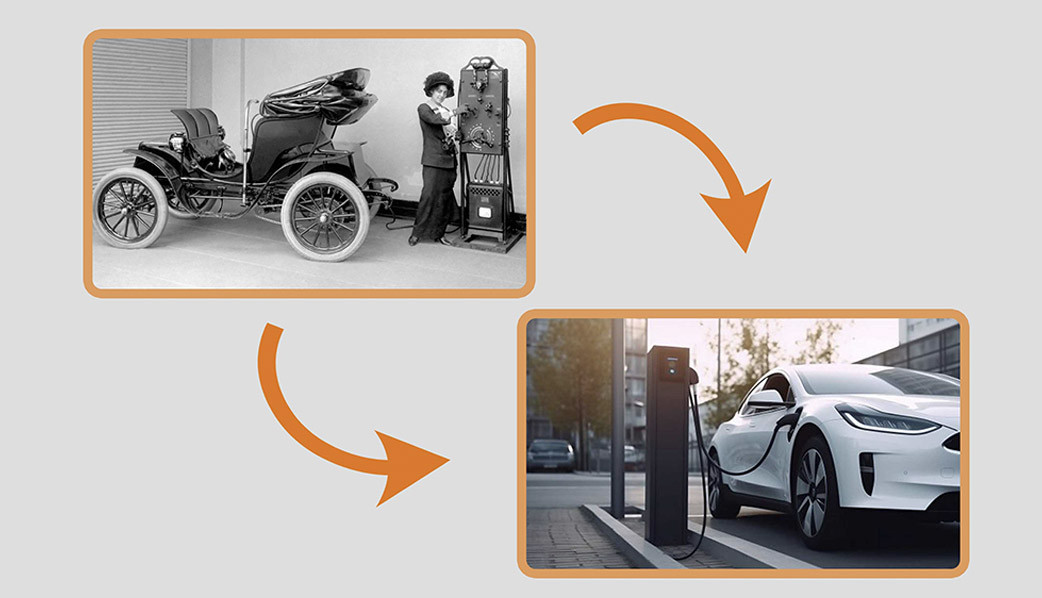
The Indian Electric Vehicle (EV) industry is undergoing a transformative phase, driven by the increasing global concerns about environmental sustainability and the need for energy-efficient transportation solutions. This blog takes you on a fascinating journey through the history of the Indian EV industry, highlighting its evolution, milestones, challenges, and the promising future it holds.
Early Beginnings
The roots of India's EV industry can be traced back to the late 19th century when electric vehicles first emerged as viable alternatives to traditional internal combustion engine (ICE) vehicles. During this period, electric trams and rickshaws were common in cities like Kolkata and Mumbai. However, the dominance of fossil fuel-powered vehicles eventually led to a decline in the electric transportation sector.
Resurgence in the 21st Century
The 21st century witnessed a resurgence of interest in electric vehicles globally, and India was no exception. Government initiatives to promote green and sustainable transportation played a crucial role in this revival. The National Electric Mobility Mission Plan (NEMMP) 2020, launched in 2013, aimed to achieve a significant penetration of electric vehicles in India by encouraging manufacturing, research, and development in the sector.
Key Milestones
- Introduction of Reva: In 2001, the Indian electric car manufacturer Reva Electric Car Company (now Mahindra Electric) launched the Reva, the country's first mass-produced electric car. It laid the foundation for electric mobility in India and garnered attention both nationally and internationally.
- FAME Scheme: The Faster Adoption and Manufacturing of Hybrid and Electric Vehicles (FAME) scheme, launched in 2015, provided financial incentives for the adoption of electric vehicles and supported the development of charging infrastructure. This significantly boosted EV adoption across the country.
- Ola's Electric Mobility Commitment: In 2018, ride-hailing giant Ola announced its ambitious plan to add 1 million electric vehicles to its platform by 2021. This move not only underscored the potential of electric vehicles for commercial applications but also spurred innovation and investment in the industry.
Challenges Faced
Despite the progress, the Indian EV industry has faced several challenges:
- Charging Infrastructure: The lack of a widespread and robust charging infrastructure has been a major hurdle in EV adoption. Range anxiety and limited charging options have deterred potential buyers.
- Battery Technology and Cost: Battery technology and its associated costs have been major barriers to EV affordability. India has been working on developing indigenous battery manufacturing capabilities to address this challenge.
- Consumer Mindset: Shifting consumer preferences from conventional vehicles to electric vehicles requires awareness and education about the benefits of EVs and dispelling misconceptions.
The Road Ahead
The future of the Indian EV industry holds great promise. The government's push for sustainable transportation, advancements in battery technology, and a growing awareness of environmental issues are driving the industry forward. Several automakers, including established players and startups, are investing in electric vehicle manufacturing and innovation.
- Incentives and Policies: Continued government incentives and policies supporting EV adoption will be pivotal in shaping the industry's growth trajectory.
- Battery Manufacturing: Indigenous production of batteries and components will help reduce costs and dependence on imports, making EVs more affordable.
- Charging Infrastructure: Investments in charging infrastructure, both in urban and rural areas, will alleviate range anxiety and encourage more people to switch to electric vehicles.
Conclusion
The history of the Indian EV industry reflects its resilience, adaptability, and potential to drive positive change in the transportation sector. From its early beginnings to the current surge in interest and innovation, the industry's journey is marked by challenges overcome and milestones achieved. With continued support from government policies, technological advancements, and growing awareness among consumers, the Indian EV industry is poised for a bright and sustainable future.







